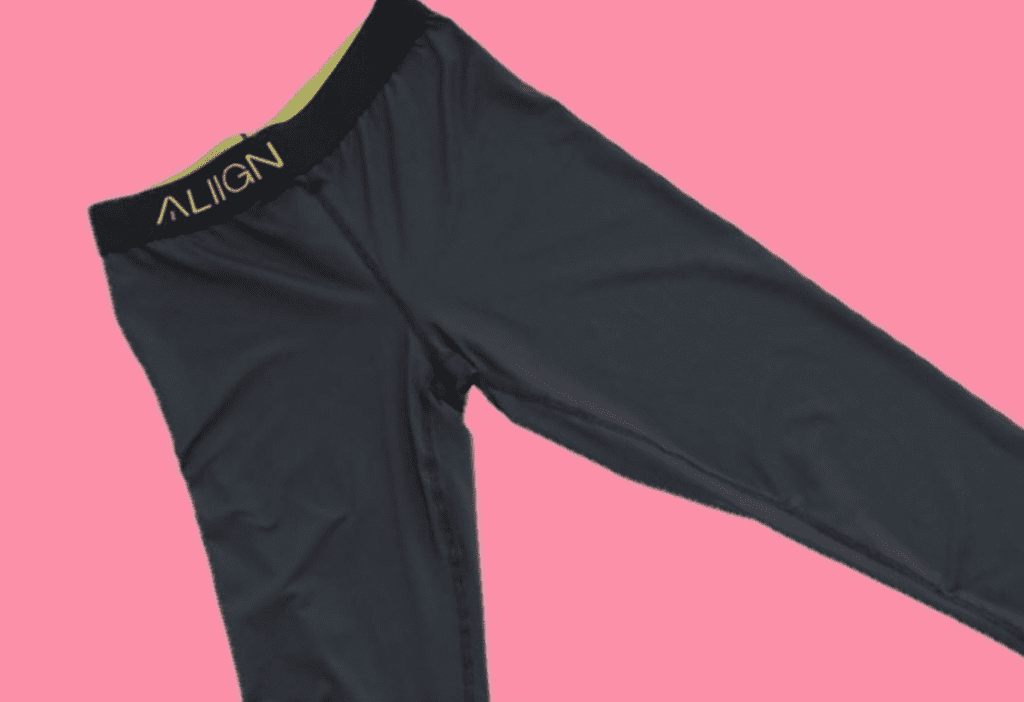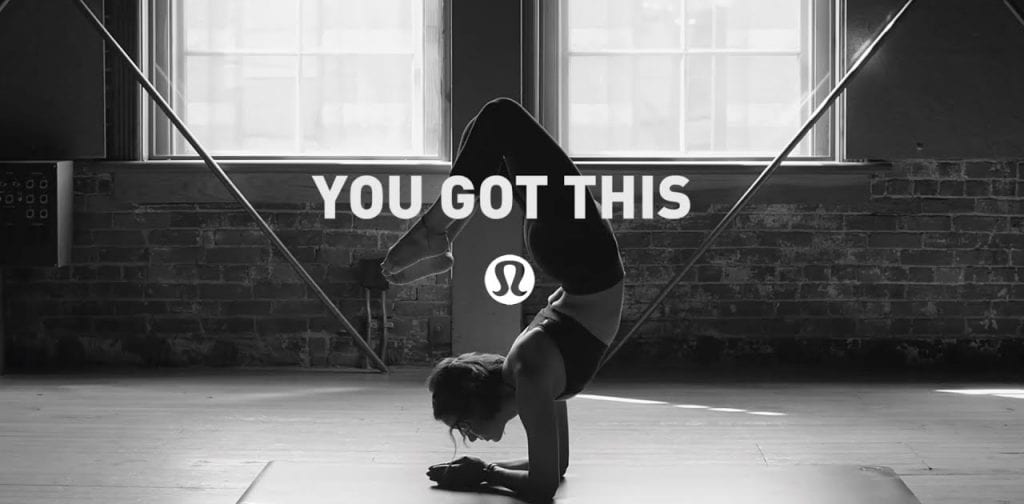Yogis and runners love them. Meghan Markle swears by them. Influencers cannot seem to take them off, and their sheer popularity has resulted in Amazon giving them the “dupe” treatment by way of one of its private labels. They are Lululemon’s $80-plus Align leggings, and they are among some of the Vancouver, Canada-headquartered activewear brand’s hottest-selling products. As of this week, Lululemon’s Align range has another distinction going for it, as well: a $20 million-plus trademark infringement and unfair competition lawsuit.
According to the complaint that it filed in a California federal court on Thursday, Aliign Activation Wear LLC (“Aliign LLC”) claims that Lululemon is on the hook for “willfully infringing … [its] ALIIGN trademark,” which the wellness company says it has been using since 2011. That is at least 5 years before its larger rival rolled out a collection of its own “Align” wares, and years before it filed a handful of trademark applications for registration for the mark, all of which were “rejected … in part [due] to a likelihood of confusion with [Aliign LLC’s existing] registration for ALIIGN” for use in connection with athletic apparel, bags, and yoga mats.
Los Angeles-based Aliign LLC asserts that aside from being aware of its existing “ALIIGN” mark, Lululemon knew – or at least, should have known – of its brand as a result of its “proven success,” as well as “powerful branding-related partnerships with companies, such as Toyota Motor Corporation’s subsidiary Scion,” and “prominent nationwide retailer Urban Outfitters,” which “selected Aliign LLC to be one of the featured brands to launch [in its] new active wear retail concept ‘Without Walls.’”
Nonetheless, Aliign LLC claims that the publicly-traded apparel giant began using – and filed trademark applications of its own with the U.S. Patent and Trademark Office for – a similarly-spelled “Align” mark for use on yoga clothing, along with “Align Crop” and “Align Pant,” thereby, giving rise to a likelihood of “consumer confusion or mistake or deception among the public as to the origin, sponsorship … of [Aliign LLC’s] and/or [Lululemon’s] goods, services, and commercial activities,” which is the core element in a trademark infringement claim.

In addition to adopting the “Align” name, Aliign LLC claims that Lululemon is “marketing similar products [using] the similar infringing marks, and in doing so, has appropriated and is using [Aliign’s] property at little to no cost.” In short, Aliign LLC asserts that Lululemon is “passing off” its pricey legging as those of Aliign LLC, and thereby, benefitting from any goodwill Aliign LLC has built up and any consumer recognition that exists in its brand, which is own for hosting retreats across the globe that give participants the “time and space to develop or deepen [their] yoga and meditation practice, and experience awesome outdoor activities and adventures in inspiring environments.”
Given the sheer size and reach of the Lululemon brand, one of the most well-known names in athletic-wear that boasts a market capitalization of $26.5 billion, and revenue of $4 billion as of 2019, it seems unlikely that Lululemon would be trying to pass its wares off as those of a smaller, far less-known brand, which is essentially what a passing off claim asserts.
Instead, a claim of reverse confusion is likely the more relevant one here. Unlike “passing off,” the reverse confusion doctrine applies to the use of another’s trademark when the secondary user (or the alleged infringer) is better known than the “smaller, less powerful” primary trademark holder. Reverse confusion, according to Loeb & Loeb’s Tal Dickstein, “occurs when a large, powerful junior user” – Lululemon here (allegedly) – “leverages its superior resources to quickly saturate the market of a small but established senior user” – Aliign LLC – “with a similar mark on similar products or services.”
The danger with reverse confusion, Dickstein asserts, “is not that consumers will believe that the junior user’s products originate with the senior user.” In other words, few consumers (if any) are likely to believe that Lululemon’s “Align” leggings are the products of Aliign LLC or are the result of a partnership or collab between the two. In reality, consumers will mistakenly believe the exact opposition: “that the smaller senior user’s products” – Aliign LLC’s, here – “were sponsored or approved by the stronger junior user,” Lululemon because the Lululemon brand is simply so much more sizable.
Regardless of the foregoing, Aliign LLC asserts that Lululemon is “blatantly misappropriating a smaller company’s intellectual property – and continuing to do so even after being formally told that infringing marks were confusingly similar to [Allign LLC’s] mark.” In addition to standing to confuse consumers, Aliign LLC claims that such behavior “violates the policy and spirit of the antitrust laws, and significantly threatens or harms competition.” As a result, it sets forth claims of trademark infringement, false designation of origin, and unfair competition, among others.
In addition to seeking injunctive relief to bar Lululemon from infringing its trademarks further and monetary damages “in excess of $20 million,” Aliign LLC has asked the court to declare that its “ALIIGN” trademark registration is, in fact, valid, and that Lululemon’s pending trademark applications for “Align,” “Align Crop” and “Align Pant” infringe upon its mark.
A rep for Lululemon did not respond to a request for comment.
*The case is Aliign Activation Wear, LLC v. lululemon athletica inc., 2:20-cv-03339 (C.D.Cal.).











